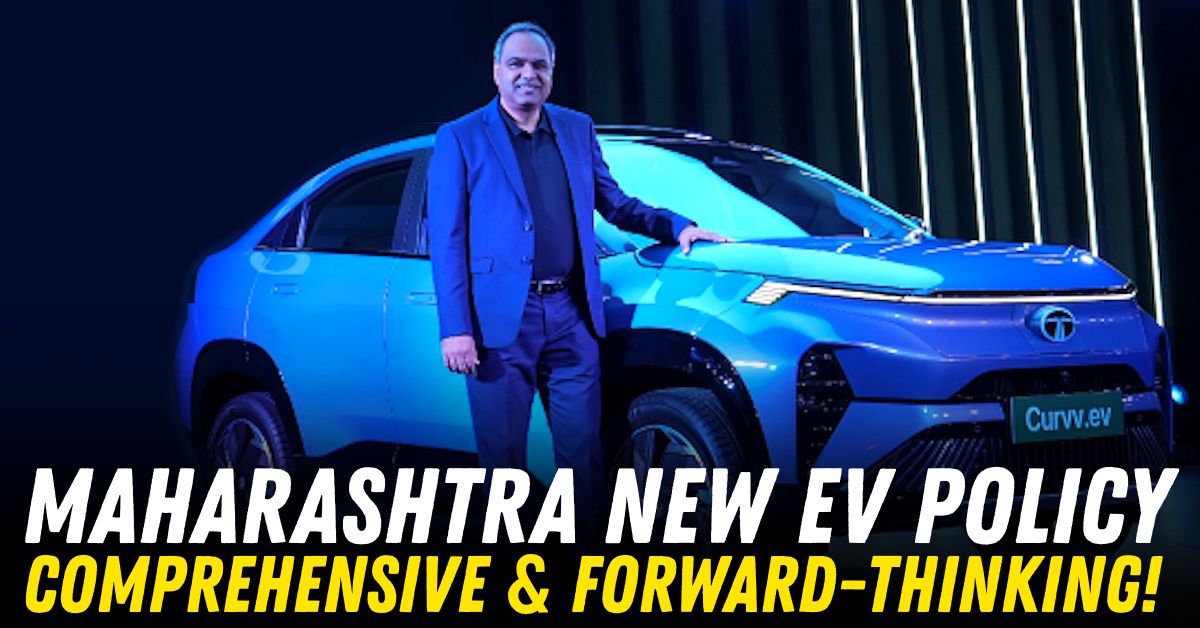Tata Motors MD Very Happy With Maharashtra's New EV Policy


Maharashtra’s newly approved Electric Vehicle (EV) Policy 2025 has drawn strong applause from Tata Motors, India’s leading EV manufacturer. Shailesh Chandra, Managing Director of Tata Motors Passenger Vehicles and Tata Passenger Electric Mobility, described the policy as “comprehensive and forward-thinking”, highlighting its potential to accelerate India’s transition to sustainable transportation.
A cornerstone of the policy is the plan to install public charging stations every 25 km along highways and urban corridors. Chandra stressed this directly addresses “accessibility challenges”, a nod to the charging anxiety that often discourages EV buyers. This infrastructure push complements ongoing industry efforts to create highway charging corridors, ensuring drivers can travel longer distances confidently.
The policy grants full toll exemptions for electric cars and buses on key routes like the Mumbai-Pune Expressway, alongside partial discounts on other highways. Chandra noted this “reduces operational costs”, a critical factor for budget-conscious families. For instance, frequent travellers between Mumbai and Nashik could save thousands annually, narrowing the cost gap between electric and petrol/diesel vehicles.
Maharashtra’s decision to waive road tax and registration fees for EVs, paired with purchase subsidies, received special mention. Chandra highlighted how these incentives “ensure long-term stability” by lowering upfront costs and guaranteeing savings over a vehicle’s lifetime. A mid-range electric car buyer, for example, could save significantly compared to traditional fuel-based options, even before factoring in lower running costs.
Beyond consumer benefits, the policy signals Maharashtra’s commitment to becoming an EV manufacturing hub. With substantial investments earmarked for clean mobility, the state aims to attract manufacturers looking to localise production.
Tata Motors is aggressively expanding its electric vehicle (EV) portfolio to solidify its leadership in India’s EV market, with plans to introduce 10 models by 2026. Currently offering five EVs-the Nexon EV, Punch EV, Tiago EV, Tigor EV and Curvv EV the company is set to launch the Harrier EV and Safari EV in 2025, both built on the new Acti.ev platform supporting dual-motor all-wheel drive and up to 500 km range.
The lineup will grow further with the Sierra EV, featuring lounge-style seating, and the avant-garde Avinya concept, targeting premium segments. By investing ₹18,000 crore in localised production and infrastructure, Tata aims to democratise EVs, prioritising electric variants before their petrol/diesel counterparts to accelerate adoption.
Industry voices suggest Maharashtra’s balanced approach-combining infrastructure development, financial incentives, and manufacturing support-could inspire other states. The policy’s tiered subsidies cater to diverse needs, from private car owners to commercial fleets, avoiding the narrow focus seen in earlier regional initiatives.
As Maharashtra targets zero-emission mobility by 2030, Tata Motors’ endorsement reflects the policy’s potential to reshape India’s automotive landscape. By tackling charging access and ownership costs simultaneously, the state has created a framework that benefits both consumers and manufacturers. The real test lies in execution, but for now, Maharashtra’s EV vision has shifted gears from aspiration to actionable strategy.